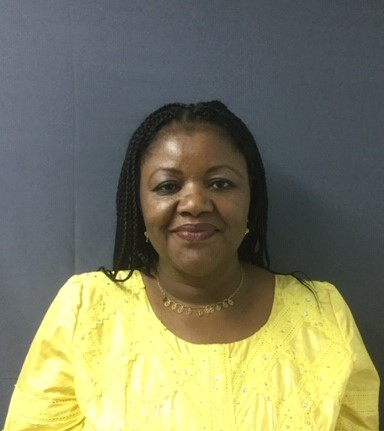
Book Review: The Girl With the Louding Voice, Abi Daré, Dutton, 2020
by Ifeoma Chinwuba
As a writer, The Girl With the Louding Voice, (GWLV) is one of the books I wish I wrote. I suppose this is the highest form of praise. GWLV is well crafted.
It is narrated in the first-person by Adunni, a village girl. She is the quintessential and ubiquitous house-girl in a Nigerian middle-class home. As so often happens, Adunni’s schooling is scuttled and her normal life disrupted by a series of mishaps. Her hunger, however, for education is not quenched. It lies inert, below the surface, waiting to be rekindled, to spring back to life. While flowing with the card life deals her, Adunni does not lose sight of her dream, which is to ‘… finish primary and secondary and university schooling and become teacher with … a louding voice.’ (P. 25).
Reading GWLV, one remembers Amos Tutuola’s Palmwine Drinkard, from the point of view of total disrespect for the rules of English grammar. For example; Those useless childrens … (p.4). Adunni, your mama have dead. (p. 4) Papa, have another something bad happen? (p.5). The narrator is semi-literate and half-baked. The language reflects this reality.
The symbolism is rich; the Yoruba worldview is faithfully captured and refreshingly expressed. The reader visualizes the early morning chores of housewives, particularly of the underage new bride, the noises of local birds, of men splitting wood, of the dynamics between co-wives and the intimacy timetable in a polygamous foyer. A Nollywood version of this novel is a matter of time.
The girl-child is not reckoned with in Ikati. Morufu is in search of a male offspring. He threatens Khadija, his pregnant, second wife, who has dropped three daughters in a row; I have warned her that if it is not a boy-child inside that stomach, I will kick her back to her hungry father’s house (p.43).
We are dealing with a male chauvinist, patriarchal milieu, where the omnipotent father dictates to his household, where women have no say in whom they marry and disobedience is severely punished. Idowu, Adunni’s mother and Khadija were not allowed to marry their loves. Asabi tries to assert herself. She pays for it. Conversely, these subjugated women are the lifeblood of the domestic economy. The demise of Idowu disrupts her family: school fees dry up, rent is unpaid. Morufu, the aged taxi-driver, will bail out the paterfamilias in exchange for Adunni’s hand in marriage. Also, in the Adeoti household where Adunni ends up as maid, Big Madam is wearing the trousers because of financial muscle. She is a successful fabrics dealer who piggybacks her husband, including his trysts.
Daré’s book also draws attention to the hardships and indignities that domestic servants suffer. These range from twenty-hour work days and food deprivation (No evening food. No morning food. P.170), to battery (she smash the shoe right inside the middle of my head. p.197), demeaning, verbal abuse, rape and perhaps murder. Human-trafficking is alive and well because Adunni will sweat from dawn to midnight, but it is her agent who pockets all her wages.
Humour abounds in GWLV perhaps to dampen the blood curdling tale. Adunni’s way of narrating the events, or perhaps her naivete, elicits laughter. Why are you not inside a bicycle shop when your head is like bicycle seat? P 19.
In Ghana, Charlie is a generic moniker for one’s interlocutor. I am surprised though, that throughout the book, the iterations of it are Chale, p.335 and chale, p.179.
Daré has written a great book. She has painstakingly crafted its plot as well as its dramatis personae. There is suspense, though I found the end predictable. It ticks all the boxes for a bestselling novel. The author joins a slew of upcoming, Nigerian female writers who have erupted on the world stage: Adeyemi, Adebayo, Obiobasi, Braithwaite, inter alia. They represent the emerging generation that received, as it were, the literary baton from their elders, Evaristo, Sefi Attah, Chimamanda Adichie, Lola Shoneyin, Tricia Nwaubani, not by-passing the matriarchs, Nwapa, Emecheta, Sofola, etc.
Indeed, Daré joins a swathe of Nigerians making waves in other facets of the creative industry-music, film, fashion. GWLV is another iteration of Nigeria as a repository of great talent. Ironically, Nigeria’s underbelly is not spared through the social ills depicted in the novel. Is Adunni’s story Nigeria’s? After many glitches in her march towards freedom, after hardships brought about by unkept promises of leaders, will Nigeria’s tomorrow be better? Like Adunni’s? Yes, but one must continually strive for it.
Ms. Ifeoma Akabogu Chinwuba is the author of several novels including Merchants of Flesh, Fearless, Waiting for Maria and African Romance. She writes from Ottawa.
